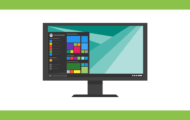Peer to peer downloading is a huge part of the modern internet. In fact, some estimates suggest that 40% of the traffic currently passing over the net is associated with peer to peer protocols.
Given all of that traffic, you’d think that most users are well aware of the risks attached to the practice, but that’s rarely the case. So we’ve put together a quick primer to introduce the dangers associated with using P2P clients. That way, you can make an educated decision about whether and how to use it to download the files you want. Also, read free movie download sites.
P2P downloads: Understanding the risks
Ever since the first peer to peer download was started, copyright holders and governments have complained about the rise of illegal downloads. But what is the precise legal situation regarding these extremely popular downloads?
In almost all jurisdictions across the world, the rules are the same: P2p downloading is totally legal. Well, it’s legal as long as you respect copyright rules – and there’s the problem.
Don’t miss how to download an embedded video?
Copyright is a globally enforced set of laws which sets out to protect the rights of creators – although it usually ends up benefiting companies who have bought the rights to the movies, music or video games created by those individuals.
What counts as copyrighted material varies slightly from country to country. However, most countries apply a version of the Berne Convention. This stipulates that creators/rights holders have exclusive rights to sell films or music for a period of 50 years following release or publication.
So if you’re downloading films released in the recent past, there’s a good chance that you are breaching copyright, and opening yourself to prosecution.
Prosecutions have occurred across the world
While individuals have been prosecuted for illegal downloads in the past, most global efforts to crack down on P2P downloads have focused on the sites which host torrents. you may also like best ebook torrent sites.
Most famously, Swedish authorities have fought a long battle against the Pirate Bay, once the world’s largest P2P database. In 2009, four of the site’s founders were sentenced to a year in jail, and the site was taken offline. But it hasn’t gone away. Versions of the Pirate Bay continue to operate from locations around the world.
Sweden are far from the only nation whose authorities have taken an active stance against downloaders. The United States has if anything been more militant. For instance, the US government seized servers belonging to KAT in 2016 and arranged for the arrest of the site’s Ukrainian founder.
Sometimes authorities haven’t needed to be so draconian. Extratorrent is a good example. Once the second biggest torrenting portal on the web, the site was also targeted for a takedown. In that case, the founders voluntarily opted to take down the main site (although again, mirrors popped up and still operate).
How to stay safe when you use P2P downloading sites
Given the history of governments acting against P2P portals, it’s essential to do whatever you can to protect yourself when you use any clients.
Firstly, use whatever tools are included with your client to scramble your IP address. Many clients have these accessories, but you may need to manually enable them.
Secondly, it’s always advisable to have a solid antivirus package installed to work alongside your client. This won’t just protect against malware (which is commonly implanted in P2P files). Surveillance agencies have been known to use Trojans as well, so it may help to block out snoopers.
However, the most effective countermeasure you can take is to use a reputable Virtual Private Network (VPN). VPNs create encrypted “tunnels” and anonymize your IP address, making it very difficult to know when you log onto P2P sites, or the files you download. Not all VPNs are up to the task of protecting P2P downloaders though, so be sure to refer to this list of the best VPN options before you sign up.
With a reliable VPN installed, you stand a much better chance of hiding your downloading activities. At the moment, law enforcement efforts are focused more on the portals themselves, but in the future individuals are likely to be targeted more and more. But with the right privacy tools, that shouldn’t stop you downloading the files you desire.







